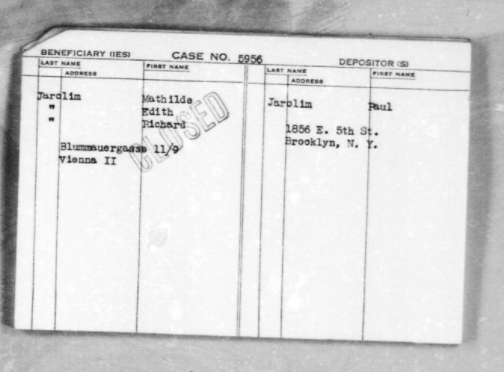
It’s the 23rd day of the Family History Writing Challenge and I see no reason to leave my father out; after all, he’s 50% responsible for my genes and 100% responsible for my name. His sister, my aunt Edith Jarolim, was my namesake. More relevant to this challenge: He had almost literally the same history as my mother did in Vienna and New York–down to the closed bank accounts and deported relatives.
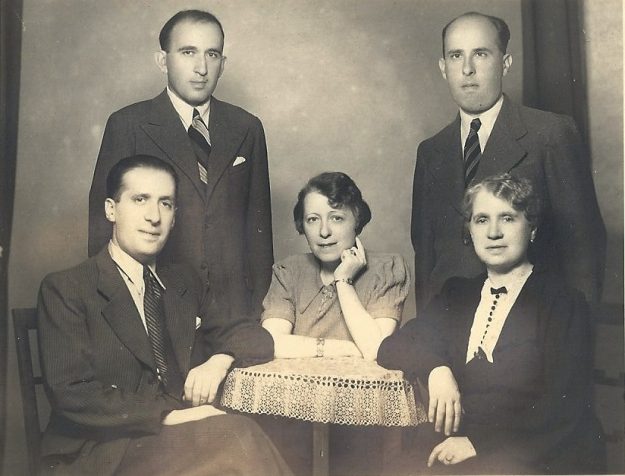
A Bit of Background
My grandfather Ignatz Jarolim — he whose first name I was too embarrassed to put on my family tree in 3rd grade — was one of the few members of my immediate family not uprooted or killed by the Nazis. He died in 1919 of bronchial pneumonia. After 1919, my grandmother Mathilde/Malvina Brown Jarolim raised four children — Edith (b. 1899), Richard (b. 1901), Paul (b. 1903) and Fritz (b. 1905) — on her own. That’s four children ranging from age 14 to 20 living at home.
Until they scattered during World War II.
My uncle Fritz, whom I met for the first and only time in 1971, joined the French Foreign Legion:
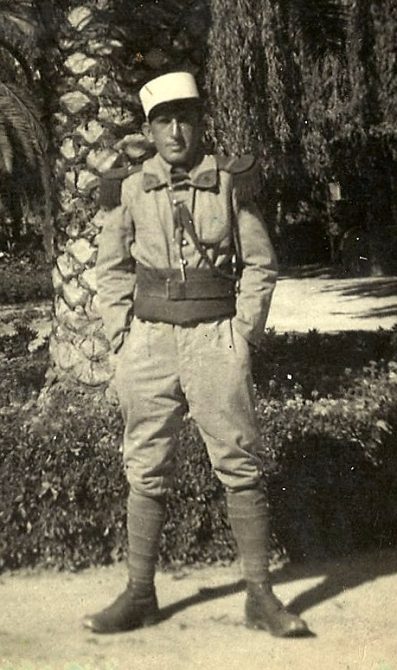
My father ended up in Merxplas, a Belgian refugee camp before he was able to emigrate to America.
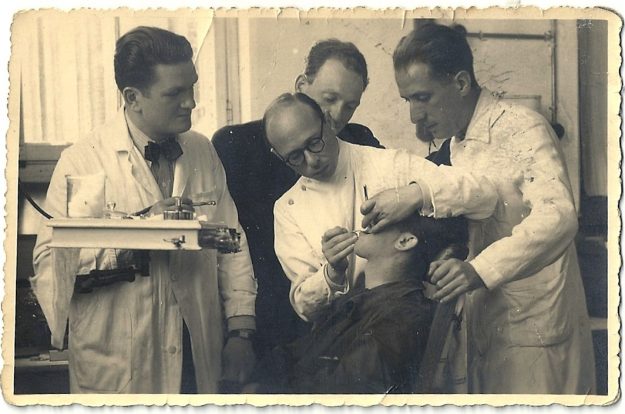
He was a dental technician in Vienna and later took up the trade in America, so this picture makes sense in one respect, though I can’t find out much more about Jews held in Belgium. My father got to America via the S.S. Pennland from Antwerp on December 9, 1939. This I did not know until I checked the ship’s log today: He was sponsored by the Brussels Committee of Refugees; his final destination was Cincinnati, Ohio; and he was sponsored by a cousin, Phil Jaeger, that I never heard of. Add that to the long List of Things I Don’t Know About My Family.
![]()
I’ll probably never learn how my father managed to stay in New York. The why is not difficult to understand: No doubt, being from Vienna, he liked big cities. He might also have figured it would be easier for a dental technician to earn money in New York than in Ohio, and I’m sure he wanted easy access to organizations trying to help European Jews; after all, he was trying to get his mother, sister, and brother Richard to the U.S. Just as my mother did for her family, my father set up a bank account with the Jewish Transmigration Bureau (you can see it next to the title of this post).
On 8/12/41 the account was “examined” and closed.
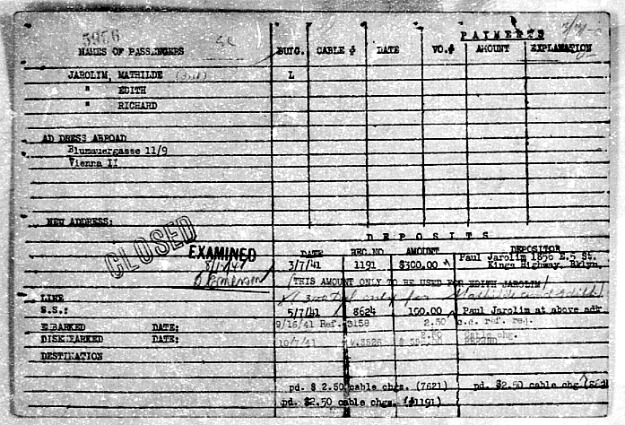
Malvina/Mathilda Jarolim died in Vienna in March 29, 1941, cause unknown. She was buried next to her husband in Zentralfriedhof. I saw a photo of their gravestone but by the time I got to Vienna in 2014, the large monument had disappeared among the ruins.
Edith was deported to Litzmannstadt on October 19, 1941. At least her mother didn’t live to see that, or Richard’s deportation to Auschwitz on January 15, 1943.
Back to New York
My parents met in a class in Brighton Beach set up for refugees trying to learn English. My mother always said my father loved her for her Viennese accent. I’m sure there was more, but I imagine they must have been drawn to each other as landsmen, Jews from the same city similarly wrenched from their families. They got married on December 30, 1941. It must have been a difficult wedding. Not only weren’t any immediate members of their families able to attend, but by then both Rita Rosenbaum and Paul Jarolim knew that, despite their best efforts, they would not be able to save them.
My father was the more outgoing of my parents, though that’s not saying much. Neither of them had any friends as far as I can recall. They never had people over to our small Brooklyn apartment, or socialized with anyone outside our home. I don’t believe it was simply that we didn’t have much money. It’s fair to say that both of my parents were a bit broken, but that my father took what happened harder. As a man, he would have been expected to be able to save his mother and sister. Failing to do so must have been a heavy burden.
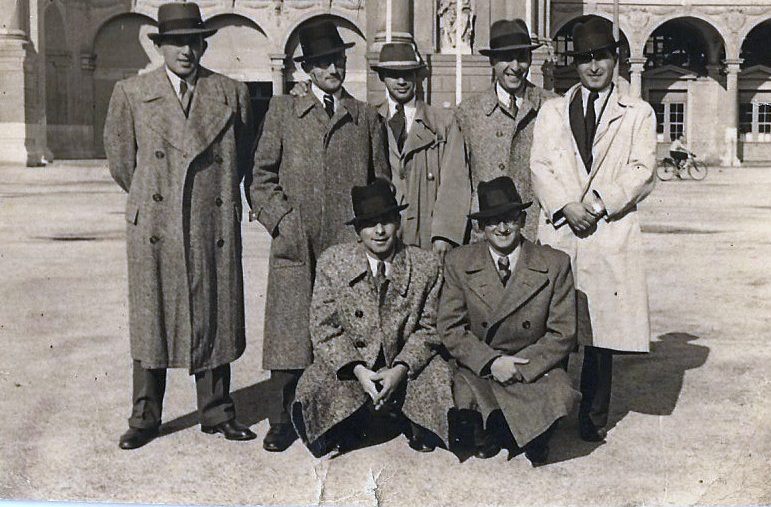
Here’s a picture of my father in Vienna with his brother and their friends, in front of a building not far from the Prater. In the 23 years that I knew him, I don’t think I ever saw him smile quite so broadly as he’s smiling here.

Heartbreaking stories.
What a burden they had….wow. ps you look like your father!
Yes, yes I do look like my father — far more than I do my mother’s side of the family. Which is why I was surprised when you said I looked like Rita. But who knows what Kornmehl/Schmerling genes I have too?